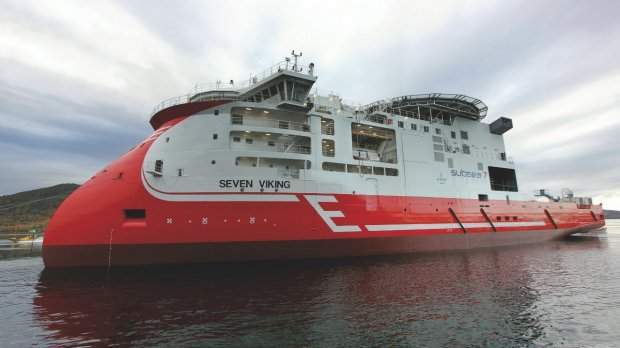Norwegian firm Statoil has awarded a contract to Subsea 7 Norway to provide subsea inspection, repair and maintenance (IRM) services for its wells on the Norwegian Continental Shelf (NCS).

Image: The Subsea 7’s Life of Field vessel, Seven Viking. Photo: courtesy of Subsea 7.
Under the five-year NOK1bn ($123m) contract, Subsea 7 will provide a Life of Field support vessel, with options for extensions, to undertake the IMR services for Statoil’s 560 subsea wells on the NCS. The service includes onshore project planning and offshore operational execution.
Statoil NCS operations technology head Kjetil Hove said: “Around half of Statoil’s NCS production comes from subsea wells. Inspection, maintenance and repair on our subsea fields are key to maintain safe and efficient operations.”
The Life of Field support vessel, comprising work class and observation class ROVs and a module handling support system, will be used to perform standard inspections, light construction and scale squeeze operations, as well as module handling installation.
Subsea 7 will use high specification Life of Field vessel, Seven Viking, for the offshore activities which are expected to commence in January 2019.
The firm will also provide project management and engineering support from its i-Tech Services office in Stavanger, Norway.
i-Tech Services senior vice-president Steve Wisely said: “The award of this long-term IRM contract acknowledges the capability and high standard of performance i-Tech Services has established over decades of providing IRM services to Statoil.
“This is a renewal of our existing contract, where we have continuously delivered excellent support.”
Statoil procurements head Pål Eitrheim said: “We are working systematically on reducing CO2 emissions from our activities.
“Use of vessels is central in this regard. CO2 emissions and energy efficiency are therefore evaluated when we enter into new contracts. Competitive vessels with technology solutions leading to lower consumption are prioritized.”
For the contract work, the vessel will be reconstructed from conventional to hybrid operation to include battery and preparations for land-based power supply.
